8 effective natural laxatives for stomach relief
)
Check out these eight juices and fruits that act as natural laxatives and how to ingest them for results, according to Shirin Buta, a registered Medical Laboratory, Immunology and Serology Scientist.
1. Prune juice
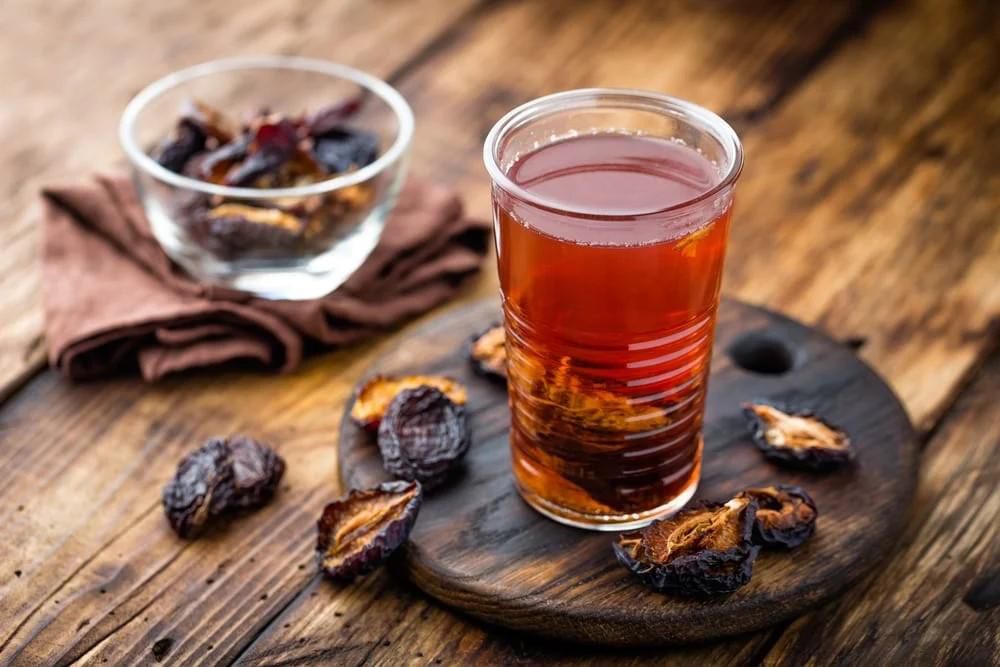
Prune juice is the best juice that will immediately make you poop because it has high sorbitol, fibre, and fructose levels that soften and bulks up the stool.
Prune is a dried plum that produces a sweet taste when juiced. A cup of these tiny fruits contains 12 grams of dietary fibre, around 50% of the required daily fibre intake. They also have the highest sorbitol levels among fruits, making them the best natural laxative.
Sorbitol acts as a stool softener by drawing water into the gut, ensuring quick digestion and regular bowel movement. Moreover, prune juice contains more than 80% water, and it is also rich in fructose (14.8 grams), facilitating constipation relief.
How much prune juice should you drink to relieve constipation?
To relieve constipation, you should take a glass of prune juice or 6 pieces of dried fruit to observe relief.
This should resolve occasional constipation within 2-3 days, and chronic constipation within 1-3 weeks of drinking prune juice.
2. Pear juice
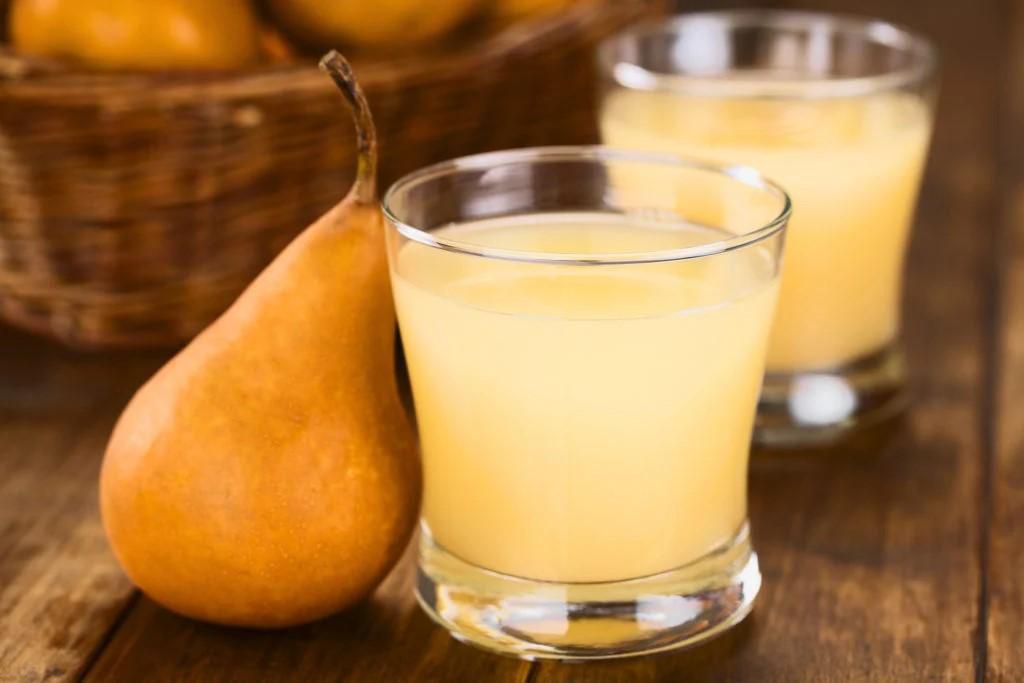
Like prune juice, pear juice is a rich source of dietary fibre, sorbitol, fructose, and water. A single medium-sized pear provides around 21% of the required daily fibre intake and contains 80-84% water, and 100 grams of pears contain 2.1 grams of sorbitol, making them an excellent juice for constipation relief.
Pear juice also contains high levels of vitamin C, a potent antioxidant that fights digestive infections and has a mild laxative effect. Each glass of pear juice provides 141% of the required daily vitamin C intake.
How much pear juice should you drink to relieve constipation?
You are allowed to drink up to two glasses of pear juice a day to relieve occasional constipation.
Drinking pear juice in the morning will relieve occasional constipation and make you poop within 24 hours. However, if you have chronic constipation, it might take a week before you see improvements. Increasing the dosage is unnecessary, as too much pear juice might cause diarrhoea. Drink 6-8 glasses of water along with 2 glasses of pear juice for faster results.
3. Grape juice
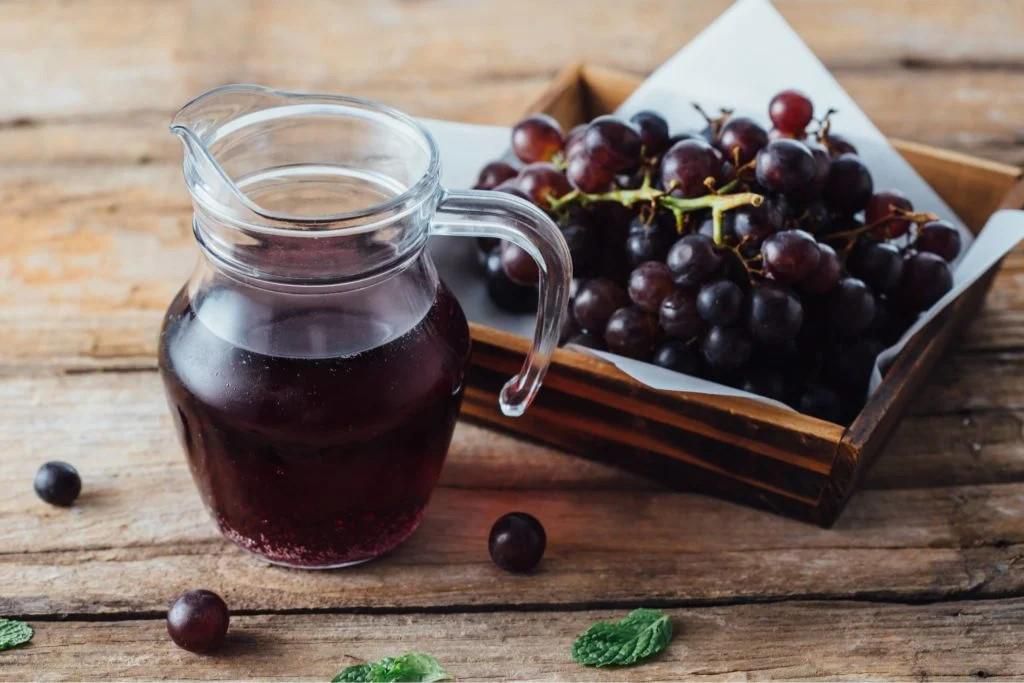
Grape juice is probably the tastiest juice with natural laxative effects and offers immediate constipation relief. Aside from containing fibre, grapes are a rich source of sorbitol and magnesium. Magnesium plays an essential role in constipation relief by relaxing bowel movements and acting as a stool softener, making it one of the common contents of most over-the-counter laxatives.
Grape juice also contains tartaric acid and malic acid as its main acid contents, which regulate digestion by maintaining the pH of your digestive system.
How much grape juice should you drink to relieve constipation?
You should take a cup of grape juice a day until you see improvements. It may take a week for grape juice to work, but rest assured that you can get more than just constipation relief when drinking it.
4. Pineapple juice
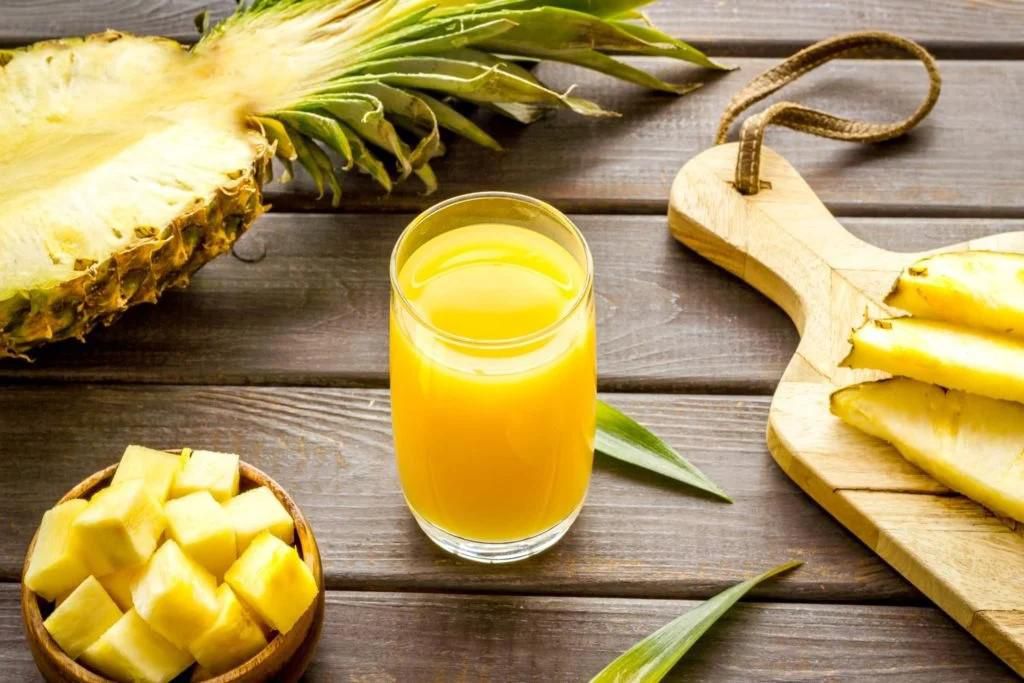
Aside from providing fibre, vitamin C, magnesium, and fructose that aid digestion, pineapples contain bromelain, a digestive enzyme that breaks down protein. When taken in adequate amounts, bromelain helps digestion by breaking down meat and other food that delays digestion.
Aside from being a natural laxative, pineapples contain high levels of antioxidants that prevent inflammation and cancer. In addition, regular intake can ease irritable bowel syndromes, relieve digestive system inflammations, and reduce the risks of colon cancer and rectal cancer.
How much pineapple juice should you drink to relieve constipation?
You can drink a glass of pineapple juice a day and increase the dosage to two glasses when needed. It should relieve occasional constipation and make you poop within 24 hours but may take a week to relieve chronic constipation. However, people with allergies, diabetes, and kidney problems should prevent drinking too much pineapple juice to avoid complications.
5. Pomegranate juice
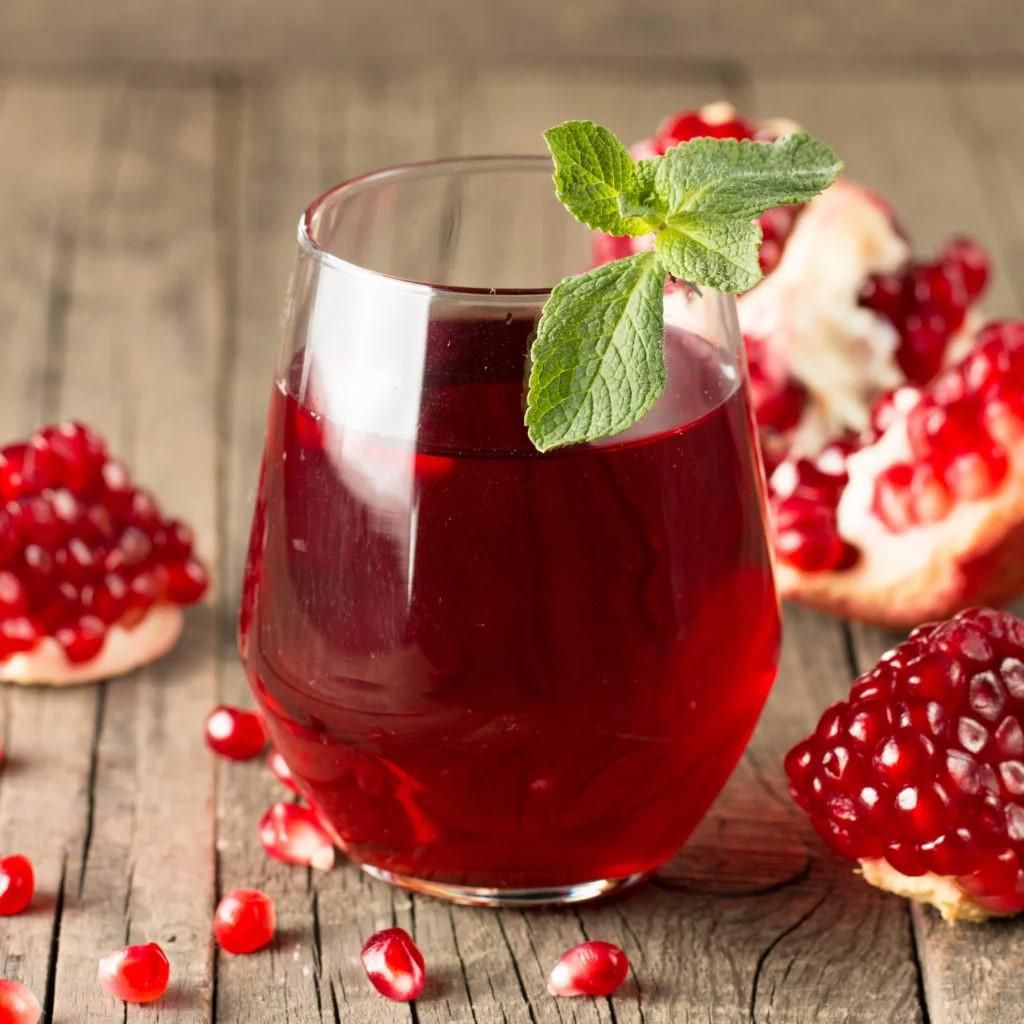
Like prune juice, pomegranates are rich in fibre, fructose, sorbitol, and water, making them an excellent home remedy against constipation. Since pomegranate juice is not highly available in local grocery shops, you can make your pomegranate juice using fresh fruit. Not only does this method ensure fresh juice, but including pomegranate arils in the juicing process increases the fibre and sorbitol levels in your juice.
Aside from functioning as a stool softener, pomegranates also hydrate the gut, as it is composed mainly of water. Since dehydration is a typical cause of constipation in adults and toddlers, pomegranate juice should resolve the symptoms.
How much pomegranate juice should you drink to relieve constipation?
You can drink a glass of pomegranate juice to relieve constipation and increase the dosage to two glasses when needed. You can expect symptoms to alleviate in 3 days. However, if you suffer from chronic constipation, it might take 1-2 weeks before you finally see improvements.
6. Beet juice
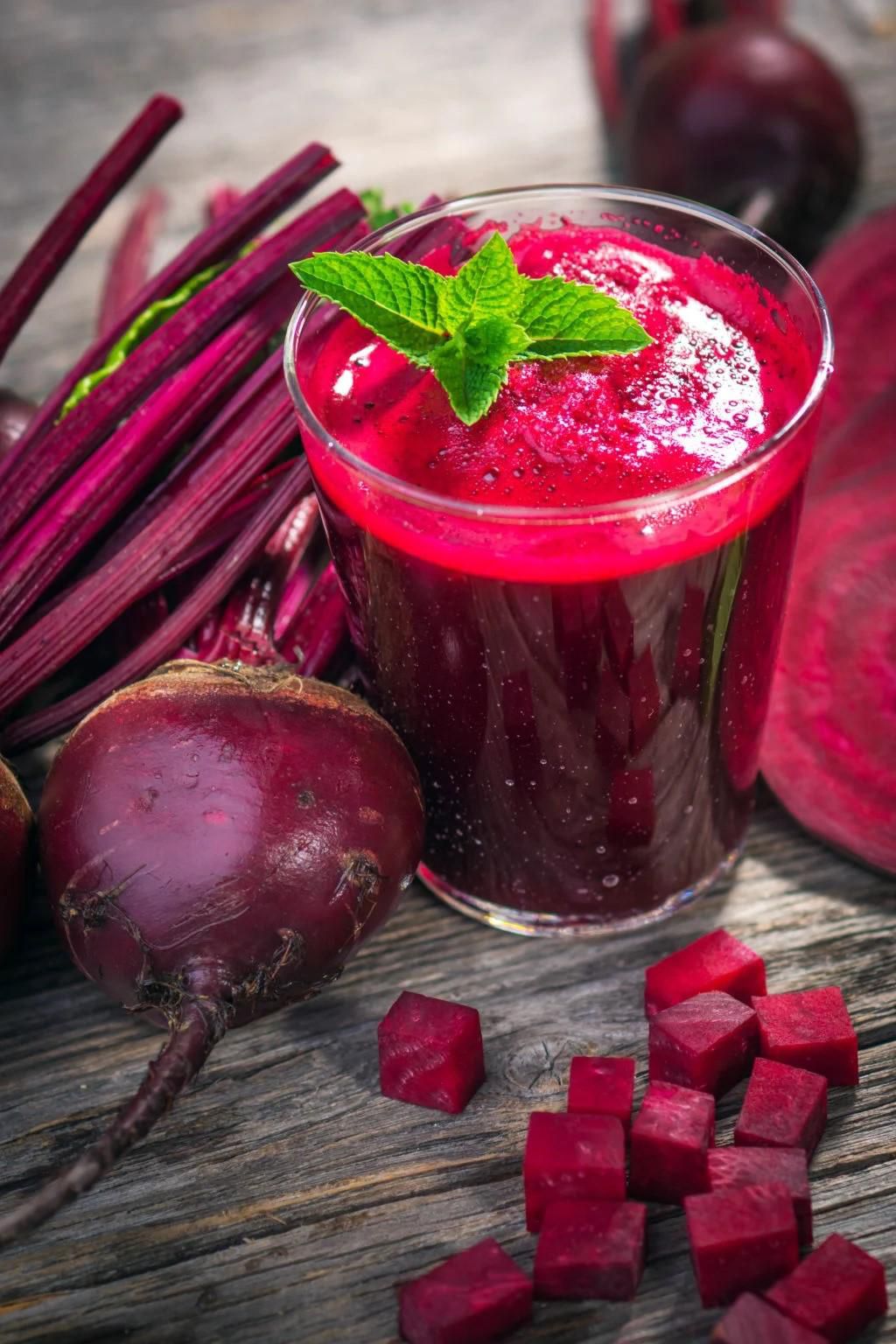
Although a root crop, beet juice also offers a natural laxative effect, just like other fruit juice on this list. You might not expect the same sweet taste as you can get from fruit juice, but beet juice also contains soluble and insoluble fibre, vitamins, antioxidants, and betalain. This powerful digestive tract aid promotes faster digestion and maintains stomach acid values.
Due to the presence of betalain, you can expect your stool and urine to turn red once excreted. Passing red or pink stool no longer than 24 hours after beet ingestion signals that your digestive faculties are back to normal. Meanwhile, excreting pink or red stool more than 24 hours after beet ingestion indicates slow digestion or constipation.
How much beet juice should you drink to relieve constipation?
Some people may have betalain allergies and develop allergic reactions after drinking beet juice. You can drink two glasses of beet juice.
7. Watermelon juice
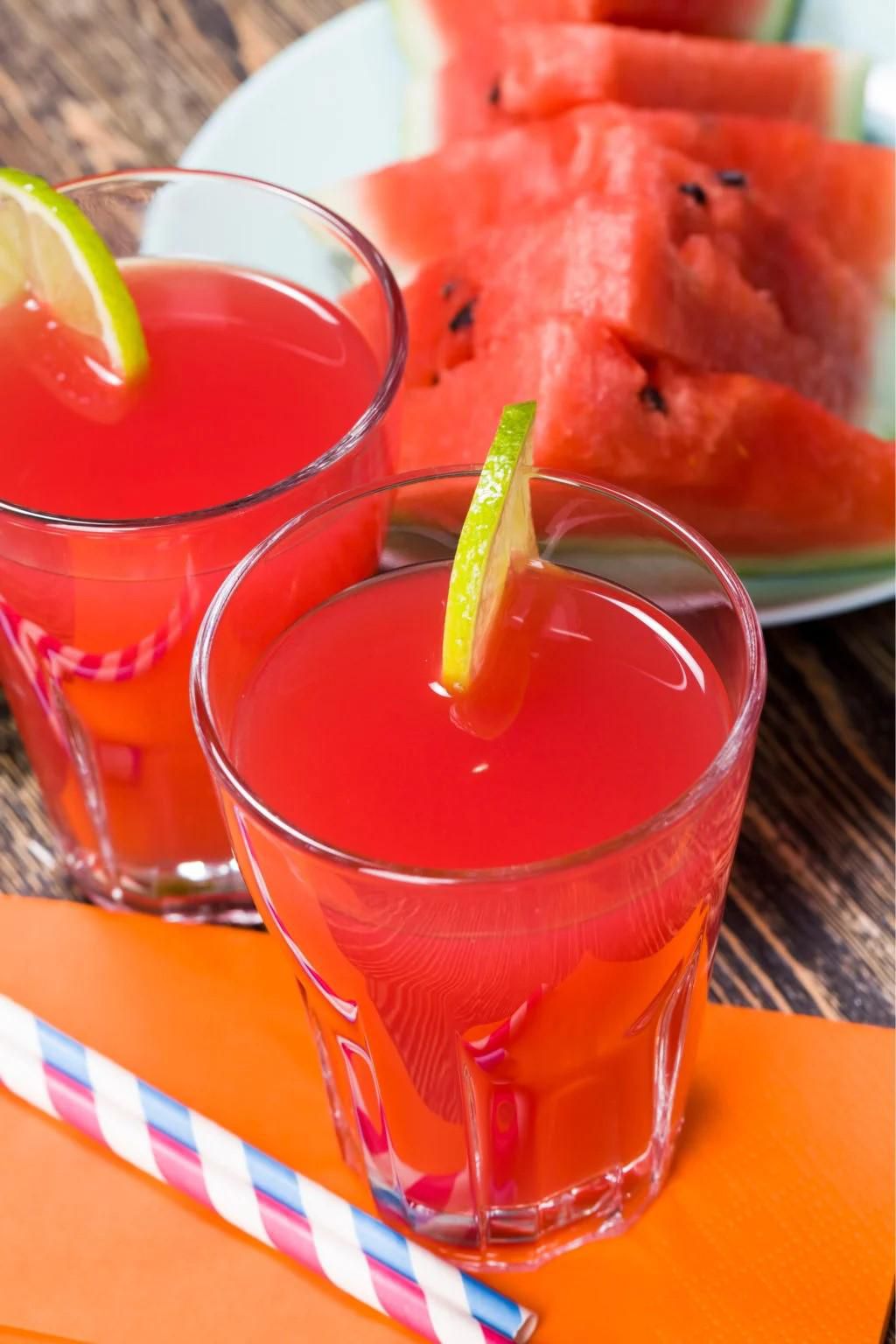
Unlike other fruit juice on this list, watermelon contains only a small amount of sorbitol. However, it is composed of 92% water and has high fructose levels that make one poop. Since most constipation is due to dehydration, drinking watermelon will hydrate their gut, soften their stool, and facilitate easier passage.
While fructose occurs naturally in fruits, consuming it in high amounts triggers the intestines to flush them out through bowel movements. For example, a glass of watermelon juice contains 19 grams of sugar, which is high enough to get you going number two.
How much watermelon juice should you drink to relieve constipation?
You can drink as much as 2 glasses of watermelon juice a day. The effects vary depending on the severity, but it can usually ease occasional constipation within the day.
8. Lemon juice
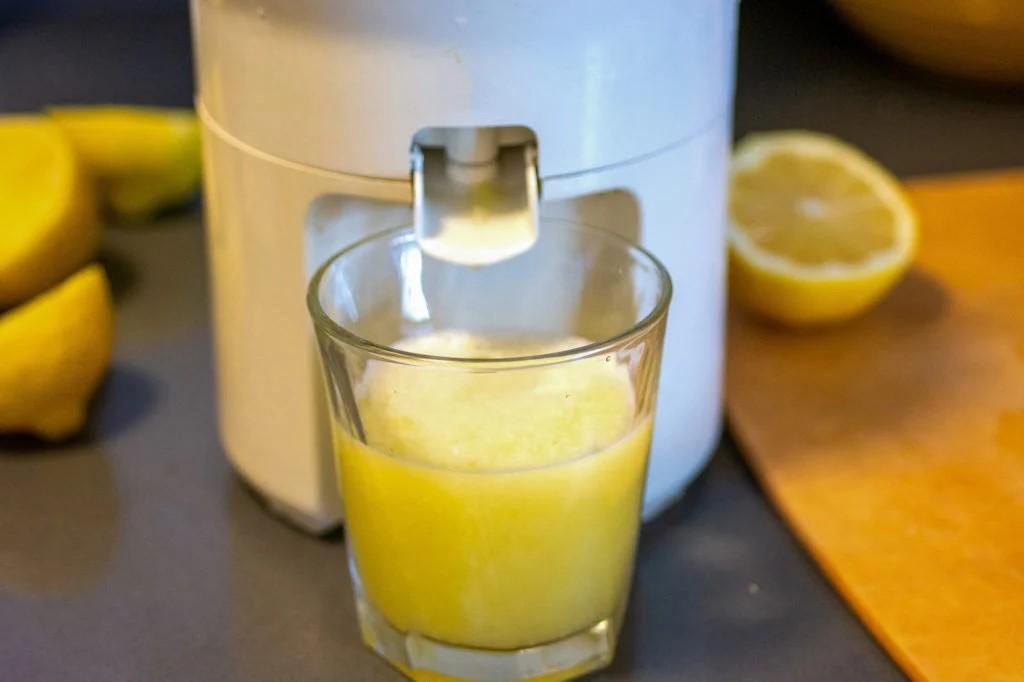
Although lemon juice is mainly used to enhance a salad’s flavour, these little yellow fruits are full of organic acids that aid digestion. Some of the most potent acids in lemon juice are citric acid, malic acid, and ascorbic acid. These natural acids draw water into the gut and balance the stomach acid to aid digestion.
However, lemon juice has a pH value of 2-3, making them very acidic. For this reason, we recommend squeezing a fresh lemon into a glass of water. This lemon water aids in hydrating the gut while hastening digestion.
How much lemon juice should you drink to relieve constipation?
You can benefit from drinking a glass of warm water with a tablespoon of lemon juice in the morning. This method has been proven to make people poop within the day.

)
)
)
)
)
)